“Concepts of care, conviviality, and embodiment” – An interview with ssolve
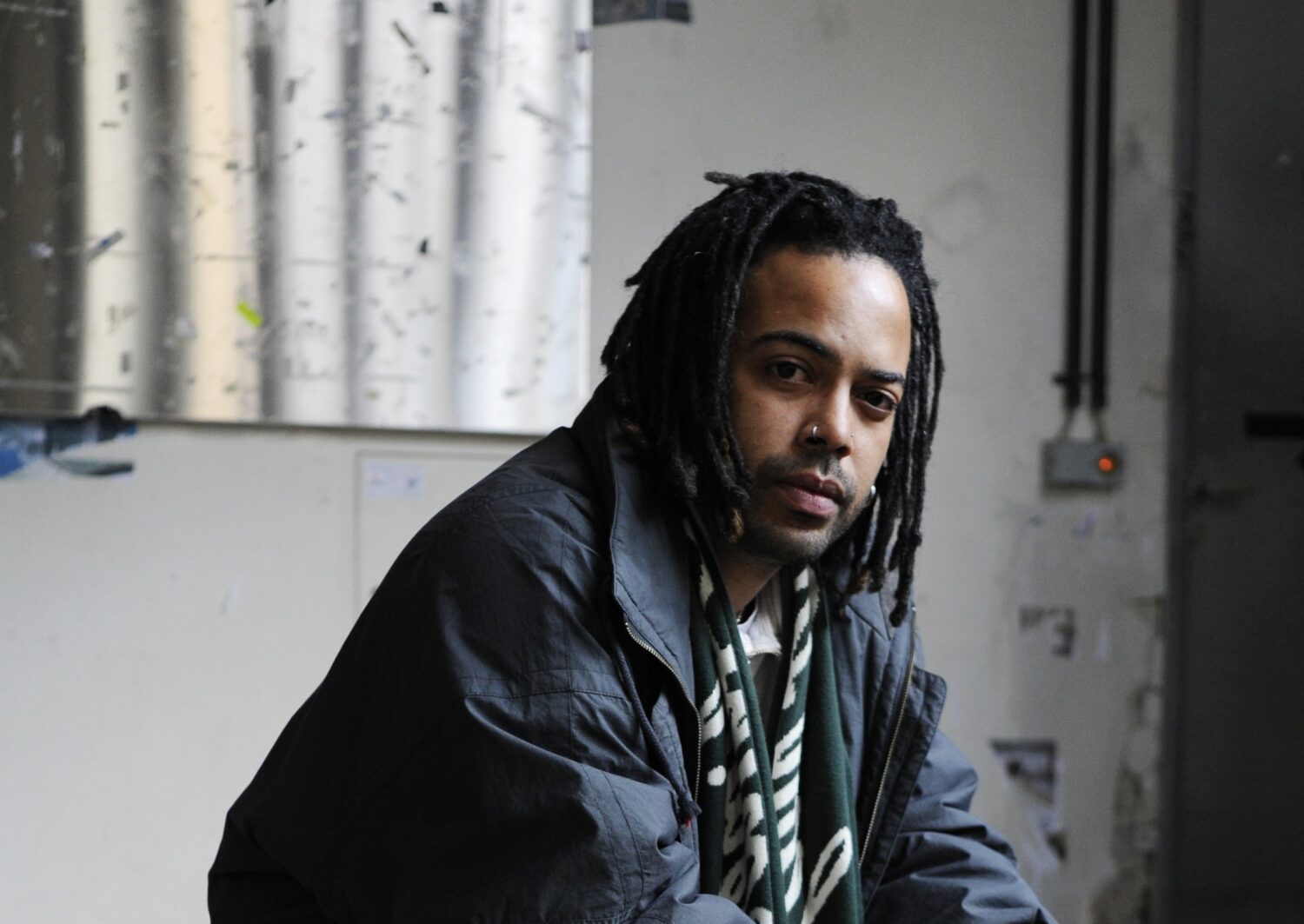
How do you define a ‘mixtape’ – and why did you choose that format to launch the project?
I’m pretty much a kid of the 2000s and back then I was listening to lots of hip-hop from New York, and lots of mixtapes. Mixtapes then were [made by] radio DJs that were like inviting rappers – or one rapper – to drop some bars or some unreleased tracks, and you know, mix it all together, add some gunshots. It was always a way to kind of showcase new stuff and some freestyles, some ideas, some sketches. To me, it just provided the opportunity to be really fast, and most importantly, not overthink it, because I’m a very overthinking person.
Tell me a bit about the transition or differences between your older project and this – and generally the story leading up to ssolve.
I mean, I was always a rapper and then with the need for beats became the producer. Then when I came to Vienna, I met lots of people who were into these glitch beats, you know. The early dubstep, James Blake, Glitch Mob, Flying Lotus. That opened up the transition from like purely hip-hop beats into a more electronic and experimental, um, world.
But I was still [also] a rapper, and I had a contract with a major in Germany and was releasing… but it didn’t feel good because the German rap industry is really problematic and also the whole German-speaking market never felt like it was for me. I just felt alienated by German rap. I realised this is also not sustainable. Like I don’t want to produce music and use my creativity for some market-oriented… crap music.
“I just felt alienated by German rap”
You felt like it was dry?
It was the same thing over again – and also the people that you come in contact with were not my kind of people.
So what are you kind of people then?
I realised that I want to have some political aspects in my creating… like the people that I work with, in a way have to be political at least. It’s not about, you know, making music for the sake of it, like for the sake of getting rich with liberal market-oriented production, but more on an artistic level, or conceptual level, or experimental level, people that want to explore possibilities, people that want to create experiences and want to create environments where you can experience these pieces. This is what’s interesting to me and not just, you know, like throwing a verse on a beat and hoping for a viral hit, or hoping that’s it’s good for content.
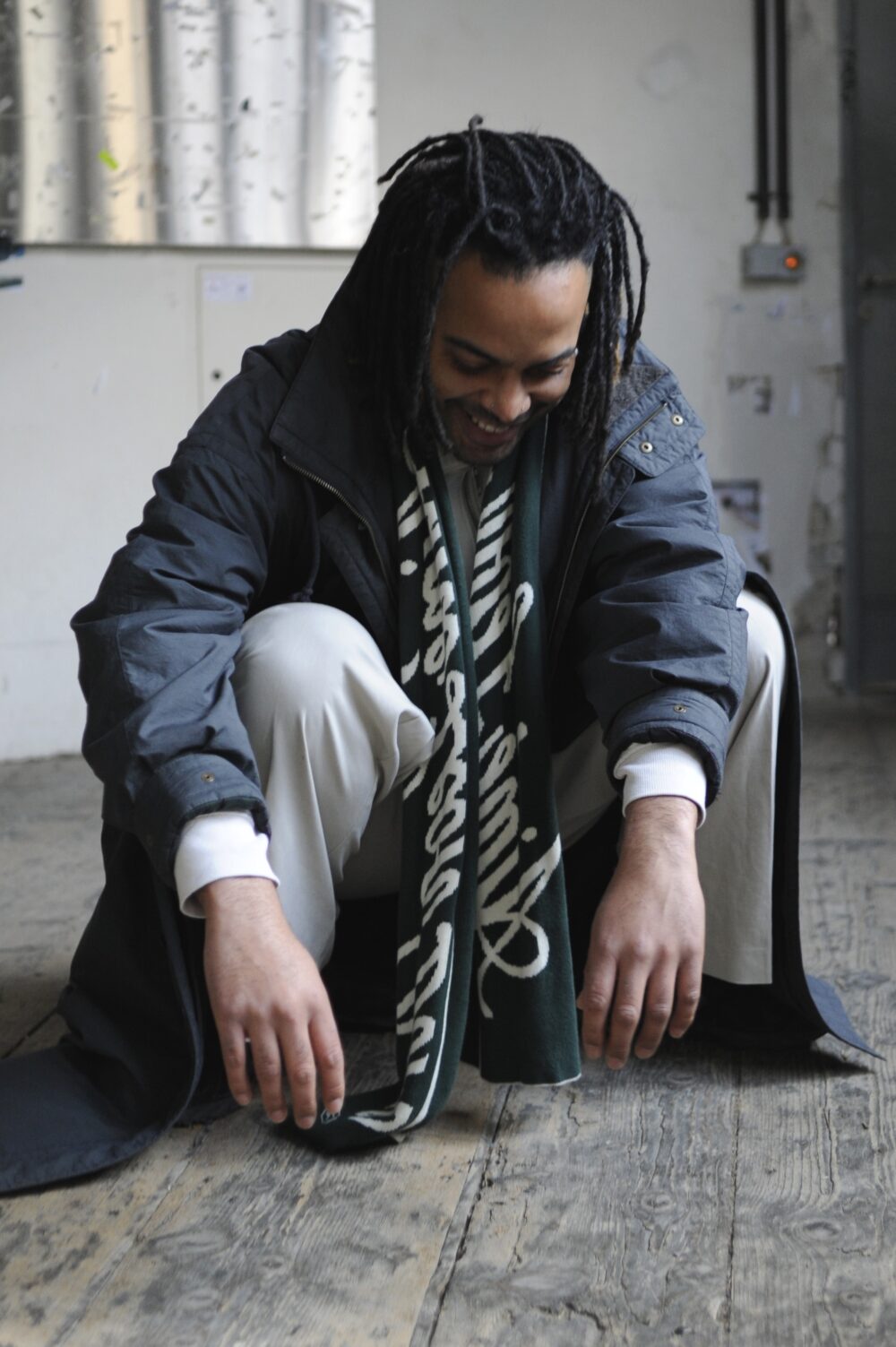
“I needed that, to create outside of this market logic”
These day the machine predefines so many of the moves for you. It has to ‘sound good on TikTok’, or get people’s attention on Spotify, and tick all the right boxes. It’s limiting. And you just wanted to say fuck all that and put something out on BandCamp and do everything to reject it.
I felt like I needed that, to create outside of this market logic, and the logic of social media, and the logic of how to distribute and disseminate your music… and to do something for me! And to get some comfort and some fun! That was also like one of the main goals for this next step: to have some fun.
The mixtape goes in some very different directions and is totally unpredictable, from gqom to growling to reggaeton to reverby guitars. How do you tend to discover and seek out music?
It’s basically, listening to mixes, talking to friends. I’m so, so lucky that my sister who I live with, is such a music nerd too. We’ve got very similar taste in music and also my partner is really into music – she’s a dancer and also works a lot with twerking actually, with jamaican dance styles, so I would listen to lots of Jamaican music. Or I would listen to lots of punk music because of my sister.
It’s great because it’s something you wouldn’t necessarily seek out yourself, right? A dancer is going to look for stuff they can explore dancing to.
It’s also a very different way of listening to music, like, the intention behind it is so different. She’s looking for music that she can shake her ass to. More obviously, from a production side, I’m interested in new styles and how people produce things and design songs. So I would specifically look for that. But honestly, I still feel like there’s a lot of this 2011/12 kind of music in there. I’m still so influenced by this early dubstep, this early Mount Kimbie, this early Hudson Mohawke, This is still there – and I’m super happy that this is also coming back!
“Yeah I really love the darkness, and like the gore also, and the rawness”
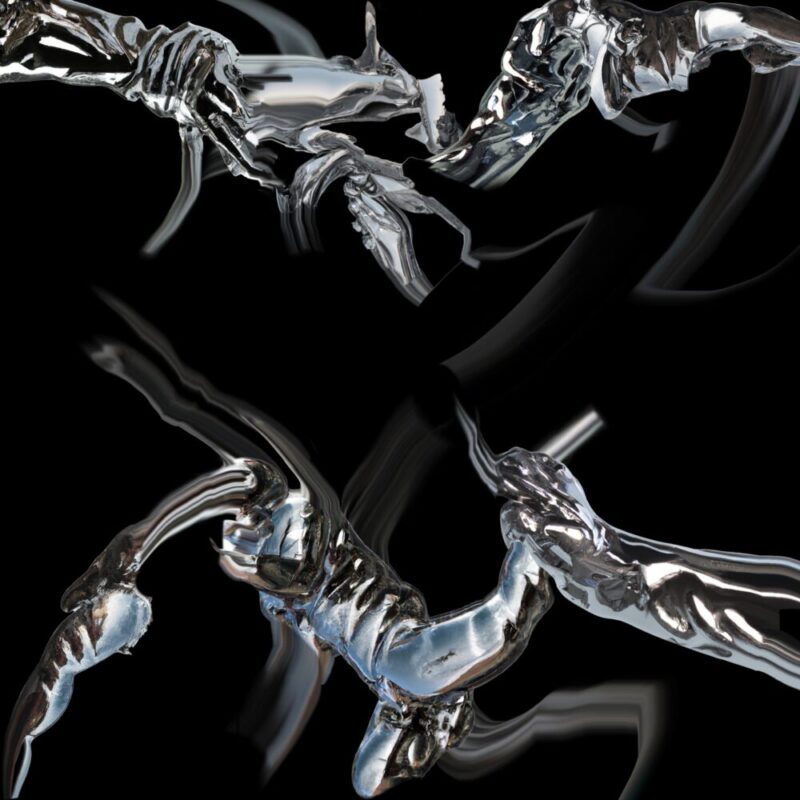
You can hear a lot of this on the record – it’s so dark.
Yeah I really love the darkness, and like the gore also, and the rawness. I don’t interpret it as aggressive though, or negative, or anti. I mean really more like to summon the inner demons and let them out – but not necessarily towards someone else.
This is what I especially love about the gqom-influenced tracks on the album. It’s interesting the way that it’s dark, because it’s so it’s so demonic sounding, but not aggressive… it’s dance-oriented. How did you come across gqom?
I was travelling to South Africa after the matura [end of high-school exams] for an educational program that I did for one year. That was the first time I got into the South African electronic music scene, and where realised, what the fuck’s going on! Back then it wasn’t really called gqom but more like, Durban House. Then in like 2019 or so, I had an internship at the Goethe Institute in Kampala, Uganda, and I was also at the Nyege Nyege festival. This is where I realised fuck I only want to dance to gqom! It’s giving me the trance vibes of techno, but it’s also giving me the darkness of early trap or Spark Master Tape.
The rhythms are great. It’s actually quite straightforward, but there’s so much culture in it. It’s crazy. I don’t even know how to put it, but I respect it a lot. My family is from Namibia. I also see this as a chance to reconnect to contemporary club culture in the area where my family is from. It feels really good to get engaged with what’s happening in Southern Africa. And to get engaged with it on a personal level.
“there was a lot about liberation, and lots of political music”
What are they playing in the clubs in Namibia these days?
A lot of amapiano right now! Namibia’s super small. It’s actually a huge country, but the capital of Windhoek is as big as my hometown Regensburg. So it’s really small.
I don’t really know anything about the history of Namibian music.
I mean, apartheid wiped lots of it out. The traditional music was forbidden. So it had to kind of grow from scratch. The generation of my father, they were totally into reggae. My father also a singer in a reggae band. It was an apartheid system – it was a colony of South Africa – so there was a lot about liberation, and lots of political music, that’s why reggae was so big.
That’s such an amazing thing about reggae music. It was always inescapably political, and it was global.
So many people projected something onto reggae.
Tell me about your dad being a reggae singer.
We had a small apartment, but in the cellar there was like a garage band project from my father. He was working for BMW in the factory, like a working class dude, but at nights he would invite friends and play – to my teenage and childish ears – lousy music, lousy ass reggae music! Only now do I realise that it was actually pretty cool that he had this thing going. He was also merging Otjiherero, our language and rhythms and vocal traditions with these reggae songs. I really wish I could now get engaged with him about it, but he passed away already.

Tell me about about how the collaborations came together and worked.
Ernst Lima: they are just such a nice person like, honestly so heartwarmingly nice and friendly. And I just like to spend time with them, and it felt so good because it gave me everything that I was needing so much. A nice conversation and a cute time together
Ironically though, that’s one of the darkest tracks on the album. It’s about death I think, but came from this lovely time you had together.
A lovely time isn’t only lovely when it’s like, happy topics, but it’s very intimate. It was just a very intimate atmosphere, and a touching atmosphere. It was so open. It was a privilege to witness somebody open up like that and bless your production with such a personal verse.
This is a part of the collaboration process that gets forgotten. It’s about working with the people, being in the right mood, being open with each other. Then you can do it in 2 hours or whatever, because all the work has been done beforehand, because you’ve got the relationship.
That’s exactly what I mean by creating environments where things can happen. To build trust and show empathy and be in solidarity with each other. Seeing that in the individual as a person and not only as a collaborator.
I mean, I’ve also had sessions with a great outcome in terms of the song where we just clicked on a musical level, but not on a personal level – but that’s not what I’m interested in anymore.
“creating environments where things can happen”
This brings me back to something you mentioned before, how you want to work with ‘decolonial concepts of care and embodiment.’ What do these concepts mean to you?
I guess it’s about seeing the whole production. I see it mostly on the production element, but also on the delivery of the product: the outcome. It’s a more holistic approach, and it’s definitely anti-capitalistic, and not oriented to be placed within a market. It’s really taking into consideration the production environment. I don’t want to be a service provider.
You don’t want to be in the BMW factory. You want to be in the reggae basement!
Yeah. Exactly. There are so many outdated concepts of how art is supposed to be produced and what knowledge must be applied in order to produce arts. This is so outdated. I want to encourage more knowledge systems. Like the track with Ragnheiður Erla Björnsdóttir [enter <SPELL>”], we wrote that song based on a drawing actually.
And then when it comes to delivering music, it’s also about designing the space. That people can feel welcome and feel safe as possible and can like, really engage with a listening practice.
But as I said, I want to engage with that. This is the aim.
Did you use any other non-standard compositional methods on the album?
I’m not a traditional, ‘music person’. Like, I used to play some drums and guitar and whatnot as a kid, but I don’t read notes. So my way of writing music has always been very initiative- or sample-based. Drawing a song helped me a lot, and I applied that method now to some elements also for other compositions for dance or film. It helps me to visualise certain elements of the instruments.
One of the biggest changes from your old musical projects as a rapper is so ego and persona-based. But that’s all disappeared with ssolve, as you disappear almost out of sight, with other people even providing most of the vocals. It’s an interesting choice for a musician to make.
I also interpret it in that way. I think other people would also argue that it’s still you, it’s still your music, but for me it’s definitely like, oh, the pressure is gone and you don’t have to embody it any longer. I don’t have to have that super specific image that’s ‘selling’ the thing. It’s more focused on music, actually – and to me that feels very relieving.
That was one of the hardest parts of being a rapper: to constantly uphold this image or persona.
It’s also limiting if you have to present a certain persona. Now, you can do everything. You can have screaming on tracks now, like fully aggressive. Or the opposite.
I’m a person that is interested in many, many different things and many different genres and ways to create stuff. And I really feel like I could do it all now. ssolve empowers me to do that stuff because I don’t have to be this like ‘boxed’ persona or product
On that last track featuring Enesi M [‘OMW’], it’s super angry, and all about wanting to be left alone while walking home. It’s a cry of anger and frustration. You talked about care and conviviality, but do you also feel quite angry about stuff too?
I feel like anger is so, so important. You need to take care of your anger, and not in the sense of you need to delete it or try to work around it, but really look at it and then embrace it and direct it to where it’s necessary. Anger is one of the biggest drivers for social change and for owning rights, and also to stay safe honestly. Anger is a way of resistance, in my opinion.
I feel like that song is so hard, because it’s a situation that’s so common for so many people.
To me it transports, all the frustration and that anger, but also the fear of what could happen… and also the being fed up. I’m super happy with the song, but also really touched by it.
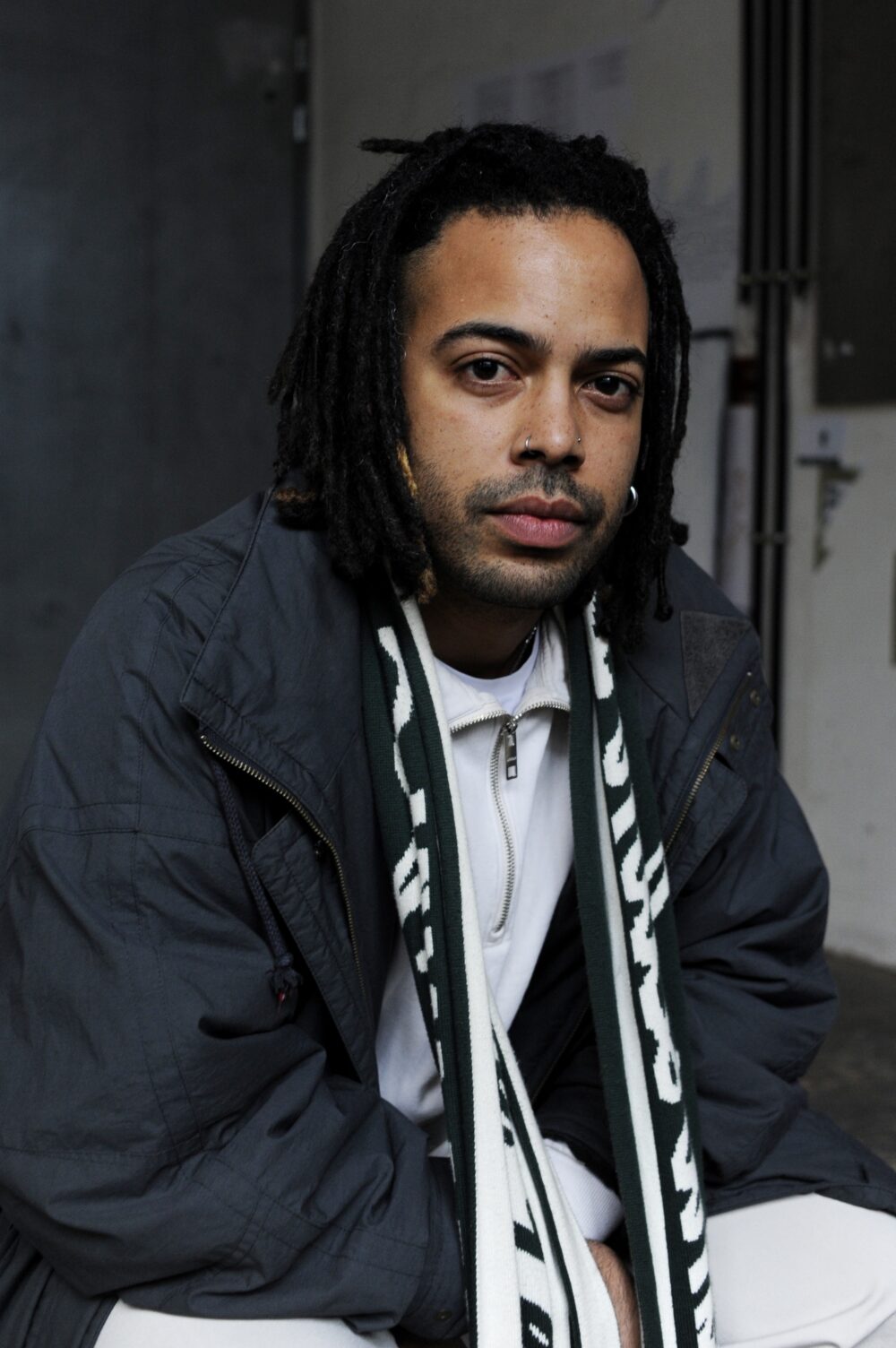
This article is brought to you by Struma+Iodine as part of the EM GUIDE project – an initiative dedicated to empowering independent music magazines and strengthen the underground music scene in Europe. Read more about the project at emgui.de
Funded by the European Union. Views and opinions expressed are however those of the author(s) only and do not necessarily reflect those of the European Union or the European Education and Culture Executive Agency (EACEA). Neither the European Union nor EACEA can be held responsible for them.
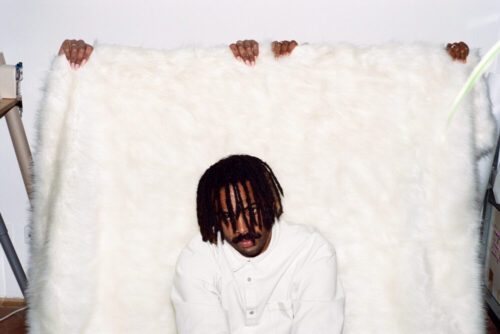
SSOLVE